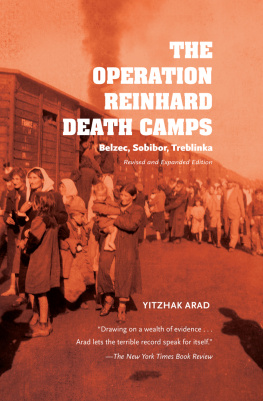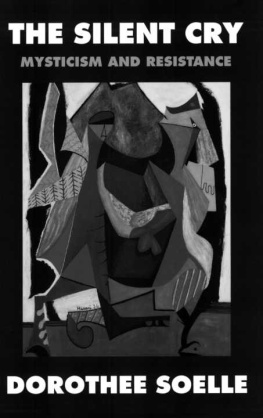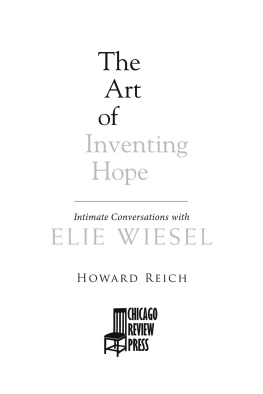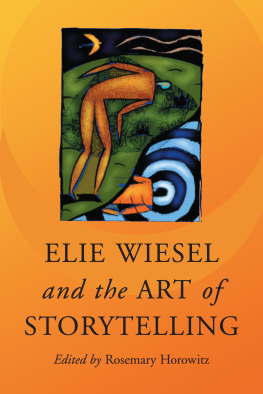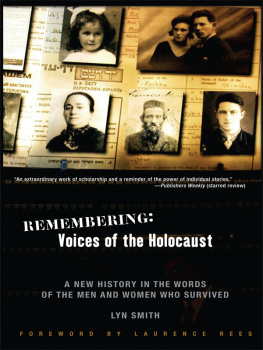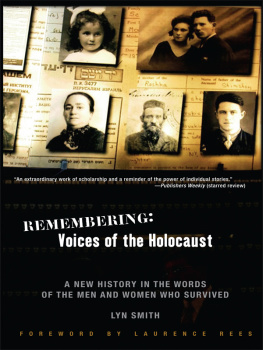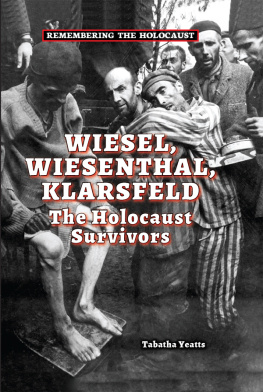VOICES FROM
THE
HOLOCAUST
VOICES FROM
THE
HOLOCAUST
Harry James Cargas
THE UNIVERSITY PRESS OF KENTUCKY
Copyright 1993 by The University Press of Kentucky
Scholarly publisher for the Commonwealth,
serving Bellarmine College, Berea College, Centre
College of Kentucky, Eastern Kentucky University,
The Filson Club, Georgetown College, Kentucky
Historical Society, Kentucky State University,
Morehead State University, Murray State University,
Northern Kentucky University, Transylvania University,
University of Kentucky, University of Louisville,
and Western Kentucky University.
Editorial and Sales Offices: Lexington, Kentucky 40508-4008
Library of Congress Cataloging-in-Publication Data
Cargas, Harry J.
Voices from the Holocaust / Harry James Cargas.
p. cm.
ISBN 0-8131-1802-6; 0-8131-0825-X (acid-free paper)
1. Holocaust survivorsInterviews. 2. Holocaust, Jewish
(1939-1945)Influence. I. Title.
D804.3.C35 1993
940.5318dc20
92-20178
This book is printed on recycled acid-free paper meeting the requirements of the American National Standard for Permanence of Paper for Printed Library Materials.
CONTENTS
PREFACE
To the extent that the interviews appearing in this book are successful, a measure of trust between the conversants may be presumed by the reader. That each of the participants accorded me his or her trust is in every case a gift I treasure. To reflect on the thought that each of these people with whom I talked is a friend is a satisfaction undeserved but deeply appreciated.
Many volumes of interviews on the Shoah have been publishedcompilations centering on a single theme: survivors, their children, even children of Nazis. This work has a wider scope. Here, major figures of the Holocaust, some more directly involved in the actual Event than others, all of whom have reflected on its significance from a variety of valuable perspectives (law, theology, philosophy, literature, memorialization), speak their minds, their hearts. I gratefully express my appreciation for their willingness to share and my appreciation for who they are.
Sharon Hesslers contribution to the completion of this book goes far beyond typing. Her smile and her friendship have been a great asset to me, and to Sharon I want to acknowledge a sincere Thank you.
The interview with Dorothee Soelle was published in Encounter, volume 49, Spring 1988. The interview with Leon Wells was published in Bridges, volume 1, Fall/Winter 1989. The Leo Eitinger interview was published in Martyrdom and Resistance, November to December 1983.
For EDDY L. HARRIS
One friend in a lifetime is much.
Henry Brooks Adams
INTRODUCTION
For many years I have been studying the Holocaust from various perspectives. I did so first as a father, next as a Christian, third as a student, now as a writer and teacher. The event has overwhelmed my thinking in all of these areas. I would not have it any other way. Although I did not realize that a pattern to my thinking was evolving, it seems that one of the constants in my approaching history has been this: What has it meant for me? Whether I read a play by Sophocles, learn that Giordano Bruno was burned at the stake, imagine the terrors of Genghis Kahn, study the life of Lucretia Borgia, try to understand Martin Luthers frustrations, look at the collaboration of certain African leaders in the slave trade, try to cope with the conquistadors, become more aware of the Innuits in northern Canada, I ask myself how I am affectedand if there is some way I ought to be responding. This book is one response I make to the Holocaust and the evils that it implies.
I was twenty-eight when I first became aware of the Holocaust, and it hit me in both a devastating and a liberating way. I had become a father a second time. We had moved to New York City (Im originally from Hamtramck, Michigan, then a rugged section of Detroit), and my idea of being a husband and father was corrupted by what I now call the John Wayne School of Charm: the macho figure of the family had to be tough, show no emotion, never admit to being wrong, show confidence in everything he did. I was teaching and the athletic director at St. Davids School (a school for boys) in Manhattan. The father of one of the children edited Jubilee, a Catholic magazine of some excellence. The editor, Ed Rice, had been a college roommate of Thomas Merton, the monk and best-selling author. One Saturday I picked up a copy of the periodical, and that issue contained an excerpt from Elie Wiesels memoir Night. It was the section in which the young boy, Elie, saw his father beaten to death in Auschwitz. It changed my life.
I was staggered to read of a boy still loving his father even though the father was helpless to protect his child. I must have been thinking that John Wayne would never have let this happen, while Shlomo Wiesel did. And still Elie loved the man. Was there a possibility that my children could continue to love me if I showed weakness, if I failed at something, if I were humiliated in public?
So I began to devour as many nonfiction books as I could on the Holocaust to see if family relationships among Jews were somehow different from what I thought that they ought to be. The tragedy of the Shoah began to be imprinted on my soul, slowly, but I was also being liberated from my own concept of fatherhood, which was so monumentally deficient.
And as I read, I became more aware of the Holocaust as a Christian, particularly as a Catholic. One day it became apparent to me, in a way it had not earlier, that every killer of Jews, of Gypsies, of Jehovahs Witnesses, of homosexuals was a baptized Christian. It takes a lot of people to kill a lot of peopleand the murderers, the traitors, the profiteers, the onlookers all had Christian backgrounds. What did that mean for me, for someone who presumed to take his religious commitment seriously?
Next, I studied the Holocaust and World War II in order to know the circumstances better, circumstances that took place during my lifetime but of which I was totally unaware. I remember interviewing a dying Holocaust survivor in the 1970she had asked me to write his autobiography for himand he told me that he read as much as he could about the Holocaust because he wanted to try to learn what was happening while he was in a death camp, ignorant of anything beyond what he could actually see for himself. I felt at one time that I, too, was imprisoned in ignorance about the tragedy and tried to make up for it in an almost obsessive way.
Finally, I came to teach and write about the Holocaust. The impetus stemmed from an interview I did with Elie Wiesel for my television program Continuum on the Central Education Network. When he arrived for the taping (some twenty years ago, now) the cameras were not ready and he had to talk with me for forty-five minutes. For me it was a mystical moment. A week later I wrote to him asking if he would be interested in collaborating on a dialogue book. He agreed. (The result, Conversations with Elie Wiesel, greatly updated and rereleased in 1992 by Justice Books, is hardly a dialogue work but more a question/answer volume.)


